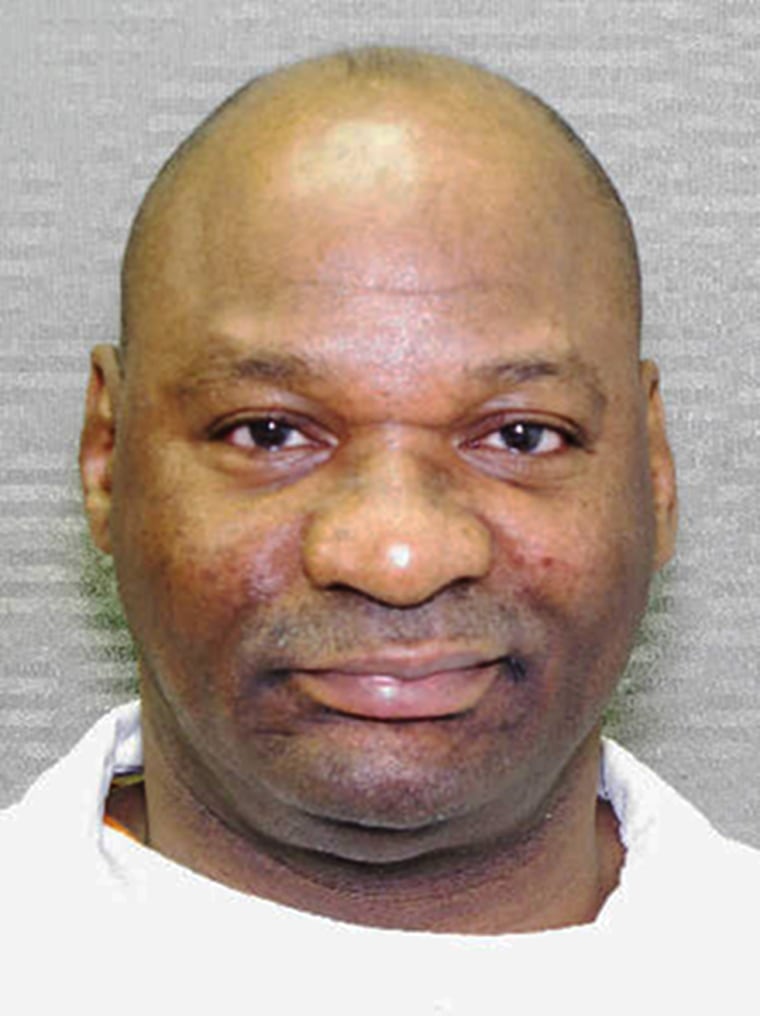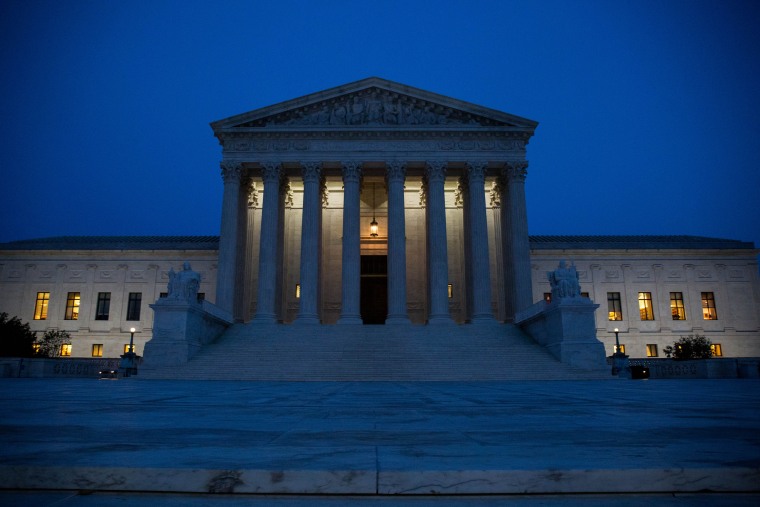The U.S. Supreme Court is set to examine whether the nation's busiest state for capital punishment is trying to put to death a convicted killer who's intellectually disabled, which would make him ineligible for execution under the court's current guidance.
Lawyers for prisoner Bobby James Moore, 57, contend that the state's highest criminal court, the Texas Court of Criminal Appeals, ignored current medical standards and required use of outdated standards when it decided Moore isn't mentally disabled. That ruling removed a legal hurdle to Moore's execution for the shotgun slaying of a Houston grocery store clerk in 1980.

The Texas court is a "conspicuous outlier" among state courts and "defies both the Constitution and common sense," Clifford Sloan, Moore's lead lawyer, told the justices in written briefs submitted ahead of Tuesday's scheduled oral arguments. Such a "head-in-the-sand approach ... ignores advances in the medical community's understanding and assessment of intellectual disability over the past quarter century," he wrote.
Moore's lawyers want his death sentence set aside, contending his punishment would violate the Constitution's ban on cruel and unusual punishment and the Supreme Court's 2002 ruling in a North Carolina case that prohibited execution of the mentally disabled.
Related: Supreme Court Declines to Decide How Long is Too Long on Death Row
The Texas attorney general's office says the state "fully complies" with Supreme Court precedents. The state points to its use of 1992 clinical definitions for intellectual disability as cited by the high court in its 2002 decision. And the office says it has consulted and considered more recent standards.
The question before the high court "rests on a false premise," Texas Solicitor General Scott Keller said, arguing that Moore's claim of intellectual disability is refuted "under any relevant standard."
Two years ago, the Supreme Court ruled unconstitutional a Florida law that barred any other evidence of intellectual disability if an inmate's IQ was over 70. Texas uses a three-pronged test to define intellectual disability: IQ scores, with 70 generally considered a threshold; an inmate's ability to interact with others and care for him or herself; and whether evidence of deficiencies in either of those areas occurred before age 18.
The state says Moore had a troubled childhood with little supervision and scored 57, 77 and 78 on IQ tests before dropping out of school in the ninth grade. He'd been convicted four times of felonies by age 17 but never was diagnosed with an intellectual disability as a youth, the state argues.
Related: What Does a Trump Presidency Mean for Justice Reform?
It describes him as living on the streets, playing pool for money and mowing lawns. During the fatal robbery of 72-year-old Houston supermarket clerk James McCarble, Moore wore a wig and fled to Louisiana afterward, and had represented himself in legal actions, showing the required intellectual capabilities, the state contends.
Moore's lawyers argue the state "cherry-picked" specific higher IQ scores, and that at age 13 Moore had no basic understanding of the days of the week or seasons of the year, couldn't tell time and couldn't read or write or keep up in school.
Since the Supreme Court allowed capital punishment to resume in 1976, Texas has carried out 537 executions, far more than any other state. Moore arrived on death row in July 1980, and only five of the state's some 250 condemned inmates have been there longer.
In 1999, an appeals court threw out his death sentence, ruling that the legal help at his trial was deficient. At a new punishment hearing two years later, a Harris County jury again sentenced him to die.
In an appeal of that verdict, the Court of Criminal Appeals returned the case to the trial court for a hearing, where the judge decided Moore was mentally disabled and ineligible for execution. But the appeals court rejected that recommendation, saying the trial judge had disregarded case law. Eight of the appeals court's nine members participated in the case, and two of them disagreed with the majority.
